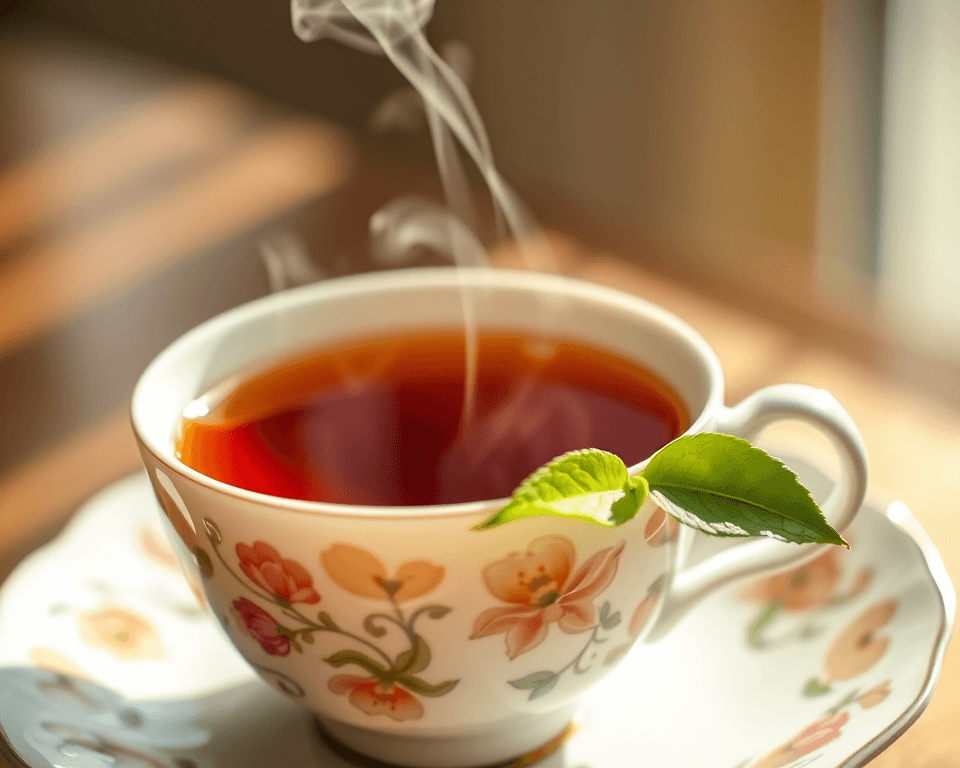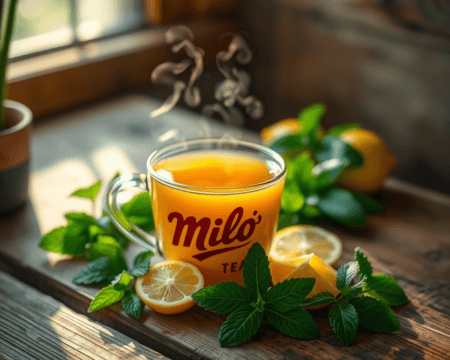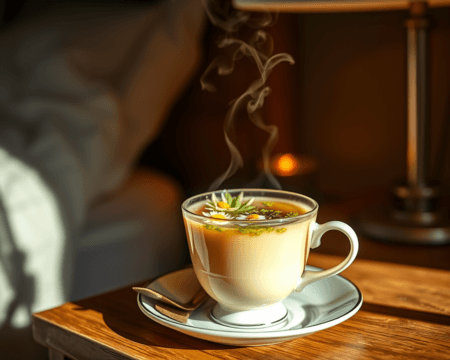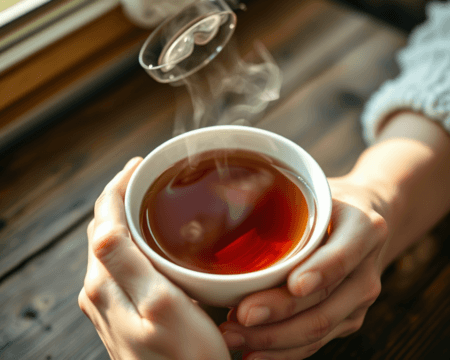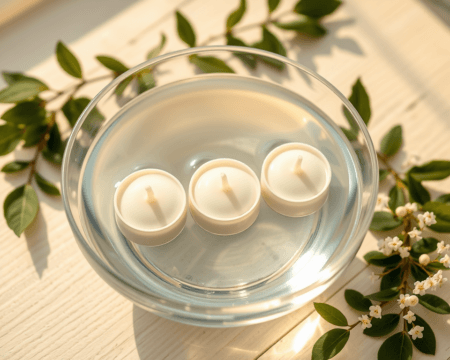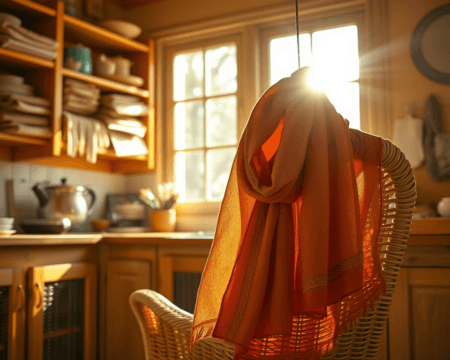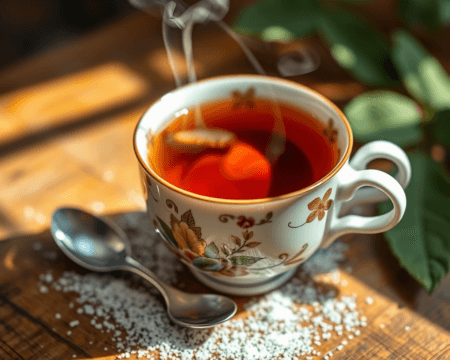When it comes to tea, there’s a serious art to getting it just right. One minute you’re sipping a soothing beverage, and the next, you’ve over-steeped your leaves into a bitter swamp of regret. You might ask, “How bad can it really be?” Spoiler alert: it can be very bad! Over-steeping isn’t just a minor brewing hiccup; it alters flavors, destroys delicate aromas, and even impacts the health benefits tea provides. So, if you love tea—and I mean, who doesn’t?—you’ve got to be smart about your steeping game.
Key Takeaways:
- Over-steeping releases too many tannins and polyphenols, causing a bitter and astringent taste.
- Different teas, like black, green, and herbal, have unique steeping times that can make or break your brew.
- Mastering the steeping process not only enhances flavor but also maximizes health benefits.
Understanding Over-Steeping and Its Effects
What is Over-Steeping?
Imagine your tea leaves lounging in hot water, releasing all those tasty compounds. But keep them in too long, and they’ll start shedding more than just flavor. Over-steeping is like leaving a friend at your house past their bedtime; it starts off fun, but eventually, it just gets awkward.
The longer you leave tea steeping—think of it as prolonged steeping—the more you’re pulling out all those flavor compounds. This infusion time is crucial! You’ve got to channel that tea brewing process like a Zen master, finding the perfect balance. Too little and you’re left with a bland cup; too much and you’re battling a concoction that tastes like floor cleaner.
Chemical Changes in Over-Steeped Tea
Now, let’s get a little nerdy with the chemistry side of things. When tea is over-steeped, it’s like a chaos party in your cup. Tannins start to spill into your brew, leading to that nasty bitterness and astringent flavor profile that can make you cringe. Instead of a delightful sip, you’re met with a cup that could seriously sour your day.
Polyphenols, like catechins, are those fabulous compounds that contribute to the health benefits of tea. But over-extraction breaks these bad boys down, ruining their potential. You start losing aroma compounds, which is where all those sweet notes come from. Your health benefits? They wash away too.
Consequences of Over-Steeping Different Types of Tea
Black Tea and Over-Steeping Effects
Let’s talk about black tea. It’s bold and proud, like a king on its throne. When you over-steep Assam or Ceylon tea, you risk ruining that royal flavor. Optimal steeping times are crucial here! Most black teas shine best with a steep of 3-5 minutes at around 200-212°F. Go past that, and you’ll taste a wave of astringency that’ll make you think twice about your choice of brew.
The tannin increase can turn your once smooth cup into a cauldron of bitterness, losing the flavor balance that makes black tea such a beloved staple.
Green Tea: The Sensitivity to Steeping Time
On the flip side, we’ve got green tea. Oh boy, this stuff is sensitive—like a prima donna at a performance. High-quality green teas, like Japanese sencha or Chinese longjing, need some loving care. Brew them at the right temp—160-180°F—and keep your steeping duration to about 2-3 minutes for the best results.
Leave them in too long, and you’ll face grassy notes that turn harsh, with sweet undertones disappearing faster than your willpower at an all-you-can-eat buffet. The science of steeping precision is the key phrase here, so remember to watch those clocks!
Herbal and Specialty Teas: Unique Considerations
Now let’s shift gears to herbal and specialty teas. These are the wildcards in your brewing game. Unlike their caffeinated counterparts, herbal blends, like chamomile or peppermint, can withstand a longer infusion time—typically around 5-7 minutes. But beware of over-steeping even here. While they might be caffeine-free, too much steeping can still muddle their medicinal properties and flavor complexity.
Each type of herb brings something unique to the table, but over-extraction can drown out delicate flavors and benefits.
Optimal Steeping Times for Various Teas
Recommended Steeping Guidelines
The path to tea perfection is paved with recommended guidelines and steeping charts. Here’s a little breakdown of those ideal temperatures and steeping durations because who doesn’t love firm advice?
| Tea Type | Ideal Temperature | Steeping Duration |
|---|---|---|
| Black Tea | 200-212°F | 3-5 minutes |
| Green Tea | 160-180°F | 2-3 minutes |
| Herbal Tea | 200-212°F | 5-7 minutes |
Injecting some flavor profiles into your experience is what it’s all about. Take Assam tea—strong and malty—or conversely, go for a light Darjeeling, which brings out those exquisite floral notes. Each of these choices excels when brewed correctly.
Adjusting Steeping Times Based on Personal Preference
But there’s room for personal flair in your steeping technique! If you’re after a stronger experience, mess with those steeping parameters a bit. Want a milder sip with less bitterness? Shorten that steeping time and pull your tea leaves out sooner. Experimentation is key. It’s your tea time, and you get to decide what’s suited to your palate preference.
Find that sweet spot between mild and strong, adjusting your brewing style to what tickles your taste buds. You’ll want to think about doing some tea tastings to really refine your skills!
Myths and Misconceptions About Tea Steeping
Common Myths Debunked
We’ve all heard the tea lore—those steeping beliefs passed down like family recipes. But not all of them hold water. Misconceptions abound like caffeine-quenching rumors. For instance, the idea that all tea bags lead to subpar flavor is just straight-up false. With the right quality, tea bags can still do wonders.
Many also believe that herbal teas can’t pack a health punch. Wrong! Research shows that various herbs like rooibos or peppermint come with their own boatload of health benefits. Busting these myths opens a whole new world of tea appreciation.
The Truth About Health Benefits and Over-Steeping
Let’s get real about those health benefits, though. Yes, tea is loaded with antioxidants and polyphenols, and while over-steeping can ruin the flavor, it can also wreak havoc on the beneficial compounds. For example, while searching for those detoxifying properties in herbal blends, leaving them steep too long can lead to bitterness, causing you to shy away from the health benefits altogether.
Understand the science of tea; it’s a fine balance between extracting goodness and avoiding that over-steeped sludge.
Quick Tips for Perfecting Your Steeping Technique
Practical Steeping Techniques
Ready for some action? Grab yourself a tea infuser—this handy tool lets you control the steeping process better than a traditional tea bag. Don’t sleep on temperature control; investing in a good electric kettle can totally change your game by helping you reach the perfect temperature without excessive guessing.
Time management is critical. Use a timer; I can’t stress this enough! It’s easy to get distracted, and over-steeping is often a case of “Oh no, I forgot!”
How to Salvage Over-Steeped Tea
So you messed up? We’ve all been there. If you accidentally over-steeped your tea, don’t just toss it! Consider some rescue methods. You might try balancing the bitterness by adding a splash of milk or a sprinkle of sugar. Another tip? Make iced tea! Pour that brew over ice and dilute it slightly with water for a refreshing alternative.
Mixing a less bitter tea with your over-steeped concoction can create a drinkable blend. You’re not out of options—the world of tea is vast, and the flavor risks can sometimes lead to unexpected delights!
In the steep game, it’s about enjoying the experience while avoiding the pitfalls of over-steeping. Master these techniques, and you’ll be on your way to brewing magical cups of tea every time!
Frequently Asked Questions
What is the ideal steeping time for different types of tea?
The ideal steeping time varies by tea type: black tea usually steeps for 3-5 minutes, green tea for 2-3 minutes, and herbal teas can range from 5-7 minutes. Sticking to these times helps achieve the best flavor without bitterness.
Can I reuse tea leaves for multiple steeps?
Yes, you can reuse tea leaves, especially for higher-quality teas like oolong or green. Generally, steep them for longer on the second brew, and notice how flavors change with each infusion—this can be a delightful exploration!
What are tannins and polyphenols in tea?
Tannins are compounds that can impart a bitter taste and astringency if tea is over-steeped. Polyphenols have antioxidant properties that contribute to tea’s health benefits, so a balance during steeping ensures maximum flavor and health advantage.
How can I tell if I’ve over-steeped my tea?
Over-steeped tea typically tastes bitter, astringent, or overly strong. If your brew has an unpalatable bitterness, it’s likely you steeped it for too long. Adjust your time in future brews for a more pleasant experience.
Does water temperature affect tea steeping?
Absolutely! Different teas require specific water temperatures for optimal steeping. For example, black tea benefits from boiling water (around 100°C), while green tea prefers lower temperatures (around 70-80°C) to prevent bitterness.
What are the health benefits of drinking tea?
Tea consumption can offer various health benefits, including improved heart health, enhanced brain function, and antioxidant support. Green and herbal teas are particularly known for their calming effects and potential weight management support.
Is it necessary to use loose leaf tea for the best flavor?
While loose leaf tea typically provides a richer flavor and aroma compared to tea bags, it’s not strictly necessary. Quality tea bags can also deliver a good brew, but ensure they contain whole leaves for better flavor release.
How should I store my tea to preserve freshness?
Tea should be stored in a cool, dark, and dry place, ideally in an airtight container. This prevents exposure to moisture, light, and strong odors, which can compromise its flavor and aroma over time.
Can I adjust steeping times for my taste preference?
Certainly! If you prefer stronger or milder tea, feel free to adjust the steeping time to suit your taste. Just remember that increasing steeping time may lead to more bitterness, so find the right balance for your palate.




